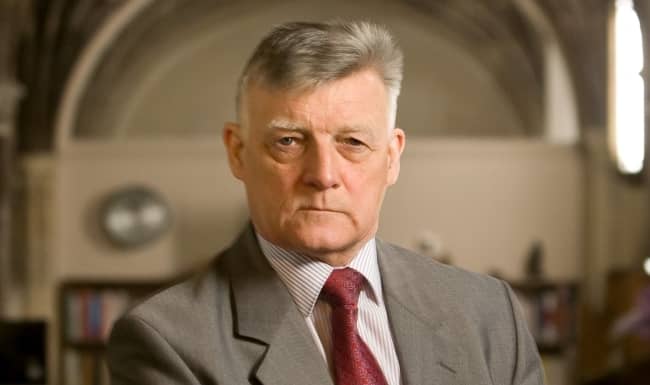Steve McCabe, Member of Parliament of the United Kingdom joined the Online Free Iran Global Summit—day 2. In his remarks, Mr. McCabe said, “On the 32nd anniversary of the 1988 massacre, I say, let’s remember those who were lost, those who died for the struggle.”
In July 1988, the Iranian religious fascism’s founder and the first supreme leader Ruhollah Khomeini issued a fatwa ordering the execution of imprisoned opponents, including those who had already been tried and were serving their prison terms. This was the beginning of what turned out to be the biggest massacre of political prisoners since World War II.
Following the decree, some 30,000 political prisoners were extra-judicially executed within several months. Today, thanks to the initiative of Mrs. Maryam Rajavi, president-elect of the National Council of Resistance of Iran (NCRI), known as “Call for Justice” many legal and international bodies have joined the families of victims in search of justice.
Here is the speech of Mr. McCabe:
It’s an honor to join so many prominent speakers at today’s international summit to call for justice for the martyrs of the 1988 massacre. A crime which today still remains unpunished 32 years later. On the 20th of June, I addressed a conference marking the day of martyrs and political prisoners in 40 years of resistance against the mullahs. On that occasion, I talked about the regime’s attempts to demonize the resistance, a campaign launched by the intelligence ministry, the MOIS. Today, I want to make a connection between the 1988 massacre and that MOIS campaign.
On the 9th of August, 2016, soon after Mrs. Rajavi called for a campaign seeking justice for the victims of the massacre, an audio tape was published of a meeting which took place 18 days after the commencement of the mass killings on August 15, 1988. The meeting was between Ayatollah Hussein-Ali Montazeri, Khomeini’s successor at the time, and full members of the death commission responsible for implementing Khomeini’s decree to exterminate political opponents. The tape clearly demonstrates that this was no mistake; the massacre was planned over several years. It also demonstrates the widespread involvement of various factions within the regime. This is an ongoing problem for the mullahs, who have always sought to deny any role in these events, and to try and cover up the extent of the massacre.
These revelations have led to a reappraisal by Western governments. The regime’s efforts to have the NCRI and the PMOI banned have now failed and, instead, active movements across America and Europe are calling for the total banning of the Revolutionary Guard and Iranian terror groups like Hezbollah. Not only does the tape raise serious questions about the involvement of high-ranking officials in this deliberate extermination campaign, it exposes their intentions all along to eliminate opponents of the creation of a medieval theocracy in modern Iran. The 1988 massacre lays bare the mullahs’ intentions, and the attempted coverup makes clear the need for a disinformation campaign by the MOIS to discredit and silence the resistance.
The revelations on the tape didn’t lead to an apology from the regime. Rather, it led to Khamenei’s sinister sounding warning to, “Be careful not to mix up the oppressor with the oppressed.” In that respect, he was right. We would not mix up the oppressor with the oppressed no matter what propaganda or dirty tricks the agents of the regime deploy. We know who the oppressor is and what must change.
You can’t lock up everyone and you can’t murder everyone. Freedom survives. The power is shifting to the Iranian people. On the 32nd anniversary of the 1988 massacre, I say, let’s remember those who were lost, those who died for the struggle. Their loss and sacrifice have strengthened the resistance. The exposure of the deliberate planning of the massacre casts a dark shadow over this regime. There must be justice.
